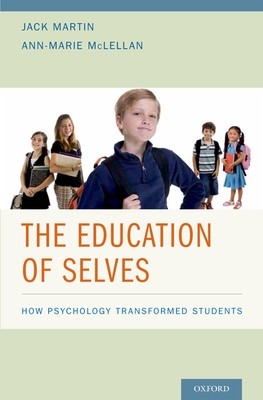
- We will send in 10–14 business days.
- Author: Jack Martin
- Publisher: Oxford University Press, USA
- ISBN-10: 0199913676
- ISBN-13: 9780199913671
- Format: 16.5 x 23.6 x 2.5 cm, hardcover
- Language: English
- SAVE -10% with code: EXTRA
Reviews
Description
Most contemporary North Americans, as well as many other Westerners, take for granted their conceptions of themselves as individuals with uniquely valuable and complex inner lives -- lives filled with beliefs, imaginings, understandings, and motives that determine their actions and accomplishments. Yet, such psychological conceptions of selfhood are relatively recent, dating mostly from the late eighteenth century. Perhaps more surprisingly, our understandings of ourselves as creatively self-expressive and strategically self-managing are, for the most part, products of twentieth-century innovations in Enlightenment-based social sciences, especially psychology. Fueled by the enthusiasm for self-expression and self-actualization that emerged in the 1960s, humanistic, cognitive, developmental, and educational psychologists published widely on the overwhelmingly positive consequences of increased self-esteem in children and adolescents. While previous generations had been wary of
self-confidence and self-interest, these qualities became widely regarded as desirable traits to be cultivated in both the home and the school.
criticism may be interpreted, at least in part, as a reaction to the scientific and professional activities of psychologists, many of whom now appear to share in the general concern about where their activities have left students, schools, and society at large.
EXTRA 10 % discount with code: EXTRA
The promotion ends in 20d.06:59:13
The discount code is valid when purchasing from 10 €. Discounts do not stack.
- Author: Jack Martin
- Publisher: Oxford University Press, USA
- ISBN-10: 0199913676
- ISBN-13: 9780199913671
- Format: 16.5 x 23.6 x 2.5 cm, hardcover
- Language: English English
Most contemporary North Americans, as well as many other Westerners, take for granted their conceptions of themselves as individuals with uniquely valuable and complex inner lives -- lives filled with beliefs, imaginings, understandings, and motives that determine their actions and accomplishments. Yet, such psychological conceptions of selfhood are relatively recent, dating mostly from the late eighteenth century. Perhaps more surprisingly, our understandings of ourselves as creatively self-expressive and strategically self-managing are, for the most part, products of twentieth-century innovations in Enlightenment-based social sciences, especially psychology. Fueled by the enthusiasm for self-expression and self-actualization that emerged in the 1960s, humanistic, cognitive, developmental, and educational psychologists published widely on the overwhelmingly positive consequences of increased self-esteem in children and adolescents. While previous generations had been wary of
self-confidence and self-interest, these qualities became widely regarded as desirable traits to be cultivated in both the home and the school.
criticism may be interpreted, at least in part, as a reaction to the scientific and professional activities of psychologists, many of whom now appear to share in the general concern about where their activities have left students, schools, and society at large.


Reviews